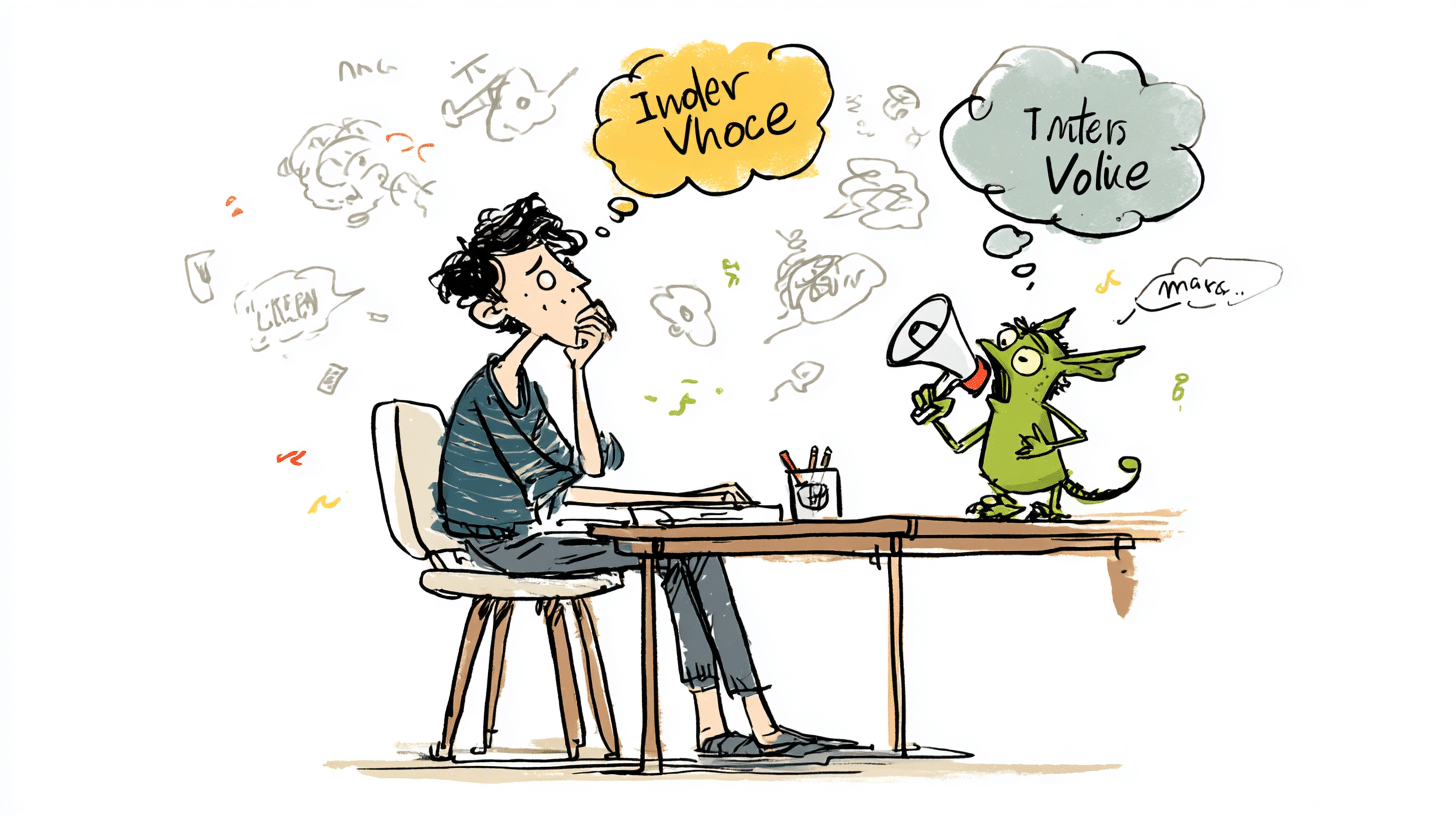Welcome to Ned’s Lab, the only science blog where your brain is both the problem and the punchline.
Today’s question:
“Why are you constantly narrating your life like a confused wizard trapped in a sitcom?”
You say things like:
- “Ugh, I’m such an idiot.”
- “Okay, we’re doing this. Just… open the email. Just OPEN IT.”
- “Don’t forget to breathe during conversations. Remember what happened last time.”
That, my friend, is self-talk.
And while it sounds like mental chaos, it’s actually weirdly important.
Let’s explore why your inner voice sounds like a mix of Shakespeare, a gremlin, and your 4th grade gym teacher.
🧠 Section 1: Meet Your Narrator (You)
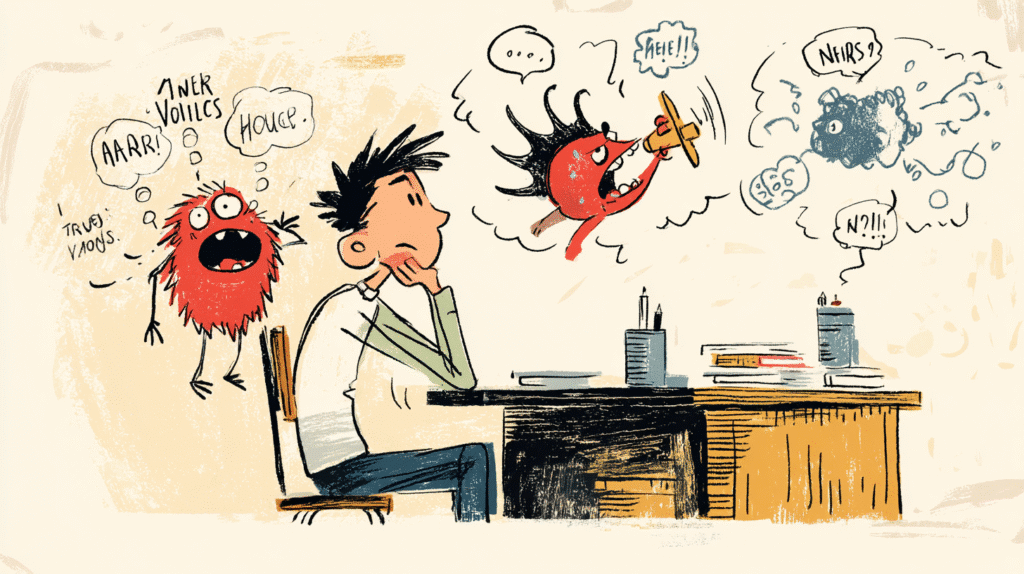
You have an inner voice.
No, not the creepy ghost kind—though that would make you way more interesting at parties.
We’re talking about the internal monologue:
That constant stream of thoughts narrating your life like a bootleg audiobook.
“Internal monologue” is your brain’s way of planning, reflecting, analyzing, and unfortunately… overthinking your lunch order for three days.
About 75–90% of people report having some form of self-talk.
The rest? Possibly aliens. We don’t judge.
How it works:
- Left brain: language, logic
- Frontal lobe: decision-making and reflection
- Default Mode Network: the brain’s idle-mode overthink machine
Put those together and BOOM—you’ve got a voice in your head that never shuts up.
Quote of the Section:
“I talk to myself because I like dealing with a better class of people.” —Savielly Tartakower
🗡️ Section 2: The Helpful Goblin (Motivation & Planning)
Believe it or not, your brain goblin has good intentions.
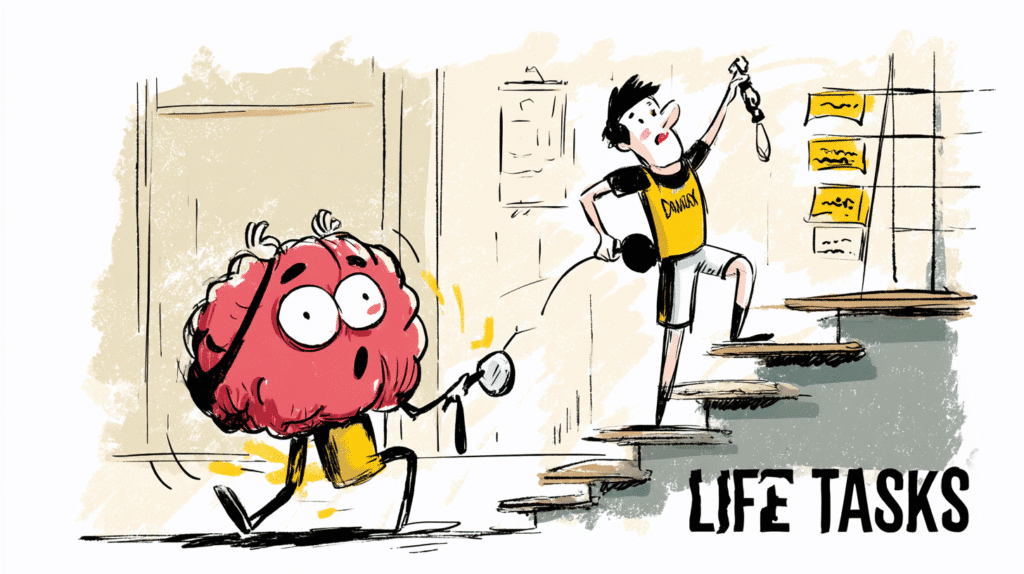
Self-talk helps you:
- Organize thoughts
- Regulate emotions
- Boost confidence (sometimes)
- Talk yourself through tough situations like:
- “You got this.”
- “Just breathe.”
- “Don’t cry in the break room again.”
- “You got this.”
Athletes do it. Surgeons do it. Even toddlers muttering “nuh-uh” while building block towers do it.
It’s called self-instructional speech, and it’s basically your brain being your own personal coach.
So if you’re pep-talking yourself before parallel parking—congrats. You’re a neuroscientific champion.
Quote of the Section:
“You have been criticizing yourself for years, and it hasn’t worked. Try approving of yourself and see what happens.” —Louise Hay
👹 Section 3: The Mean Goblin (Self-Criticism)
Unfortunately, the voice in your head isn’t always supportive.
Sometimes it’s… well, a jerk.
It says things like:
- “You’re so dumb.”
- “Why did you say THAT?”
- “You’ll never finish anything, ever, and now everyone knows.”
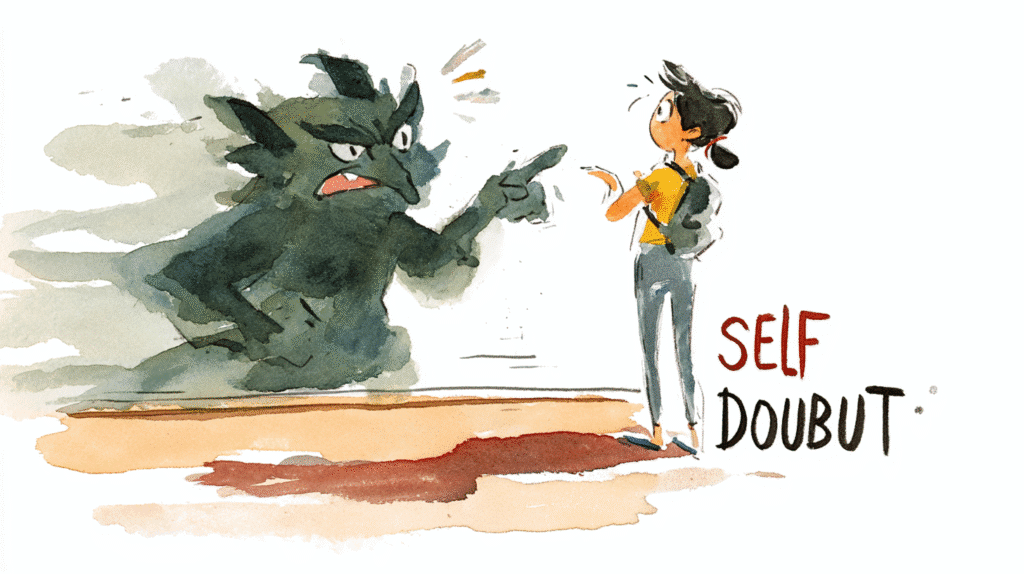
This is negative self-talk, and it’s linked to:
- Anxiety
- Depression
- Low self-esteem
- Spontaneous cookie binges
Why it happens:
- Your brain evolved to anticipate threats.
- It thinks negative predictions = survival.
- So it yells “YOU’RE GONNA FAIL!” as a way to protect you.
Except now you’re just anxious in Target.
Ned’s Tip: Give your negative voice a ridiculous name.
Like Captain Doomthought or Barb the Bummer.
Laugh at it. Reclaim your brainspace.
Quote of the Section:
“Don’t believe everything you think.” —Allan Lokos
🧪 Section 4: When the Goblin Won’t Shut Up
Overactive self-talk can spiral into:
- Overthinking
- Rumination
- Insomnia
- Midnight replays of that one embarrassing email from 2017

This happens when the Default Mode Network (DMN) goes full goblin-mode.
It’s the part of your brain that activates when you’re not focused—aka when you’re showering, lying in bed, or staring into your fridge hoping it answers your problems.
DMN = Your brain’s version of “I’m bored, let’s self-sabotage.”
What helps?
- Mindfulness: Bring your attention back to now.
- Journaling: Dump the thoughts.
- Externalizing: Speak out loud or write a letter to your inner critic.
Bonus Tip: Say your thoughts in a goofy accent. You’ll stop taking them seriously real fast.
🧼 Section 5: How to Tame Your Brain Gremlin
You can’t silence your inner voice.
But you can retrain it.
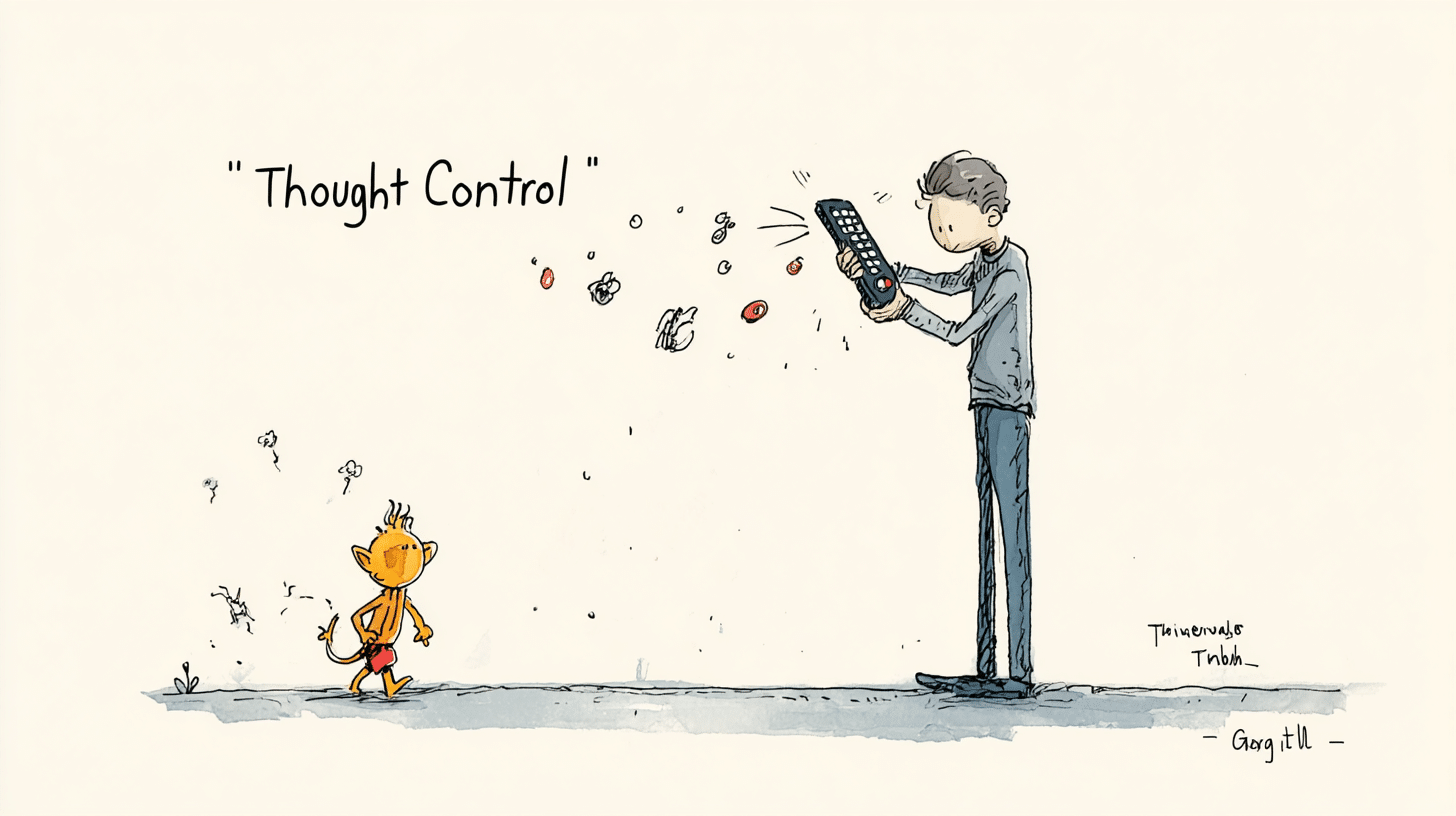
Try these:
- Shift from “I” to “You”
Instead of “I can’t do this,” try “You’ve handled worse.”
It’s called distanced self-talk, and it works. - Catch the thought. Challenge it. Change it.
“I’m going to fail.” → “Maybe. But I’ve also succeeded.” - Affirmations (but goofy)
Like: “I have the brainpower of a mildly confused raccoon… and that’s enough.”
🎤 You’re Not Crazy—You’re Cognitive
Talking to yourself doesn’t mean you’re broken.
It means you’re human.
And very possibly hilarious.
Your brain evolved to help you survive, plan, and adapt.
It just never learned how to shut up.
So the next time your inner voice says “You’re the worst,”
just say,
“Thanks for your input, Barbara. Noted. Moving on.”
Quote of the Day:
“The mind is like a bad neighborhood. Don’t go in alone.” —Anne Lamott

